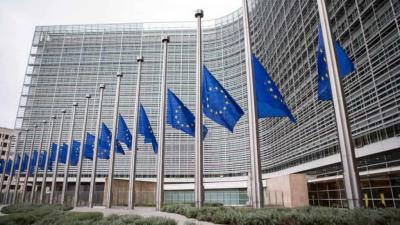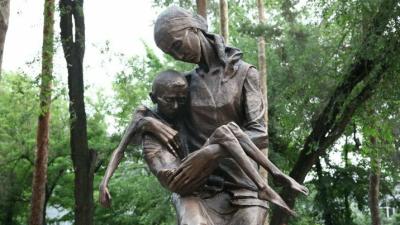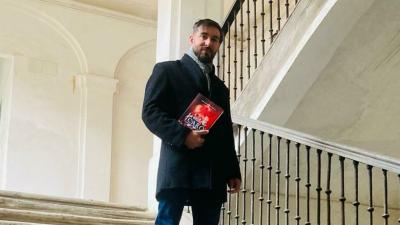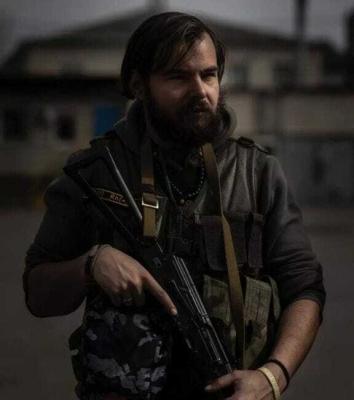Donald Trump’s victory has created a sense of uncertainty among many European governments, who fear a US retreat from Europe and what that would mean for the defence of the Old Continent.
The Republican candidate’s repeated statements during the campaign that he intends to pull the US out of the conflict in Ukraine and turn to China, which Trump sees as his real rival, are a cold shower for those who have relied on the security provided by the US military machine for their defence and for too long have not been doing their job. If the new administration fails to end the war, as it repeatedly promised during the campaign, there is a chance that US military aid will end and that support for Ukraine in the face of Russian encroachment will depend almost entirely on European allies.
In Ukraine, Trump’s arrival was not seen in an apocalyptic light for two reasons. First, the Ukrainians are aware of their capabilities and have already suffered material shortages due to the endless political debates of their allies, as happened during the war. Second, there was enormous mistrust of a new Democratic Party government. Of the aid approved for this year, the Biden administration has sent only 10 per cent, and Zelenski himself has denounced the lack of trust in a White House that has leaked classified information to the media. Declarations of ‘support for Ukraine for as long as it takes’ have not been translated into action, and one of the most celebrated news stories in Ukraine has been the political disappearance of National Security Adviser Jake Sullivan, who is accused, not without reason, of doing everything possible to prevent a Russian defeat. On the other hand, former Ukrainian President Petro Poroshenko recalled how, unlike Obama, the Trump administration provided the Ukrainian army with the spears and other weapons it had been waiting for since 2014, its tough sanctions policy and also how it actively opposed the construction of Nord Stream 2.
We do not know what will happen in his second term, but a Trump candidate is one thing and a Trump president is another, and there are new actors on the ground, such as North Korea, whose alliance with Russia is a blow to the Asian chessboard that the US cannot ignore. But whatever happens, after almost three years of war, neither European governments nor the European Commission can afford to be surprised or to blame others for the situation in which Europe finds itself. Some countries, especially those that know Russia well, have multiplied their military spending and the development of their armed forces. Poland, the Baltic republics and Finland are building fortifications on their borders to protect them from Russian attack. Sweden has reintroduced conscription and Germany is considering doing the same. Ukraine has received military, humanitarian and economic aid, but will it be enough?
On paper, the EU has the potential to do so but the reality is that our capacity to manufacture ammunition and weaponry is not sufficient for the needs of war. How is this possible? Because for too long, the Brussels elite have chosen to live in a dystopia of open borders, climate change, gender politics and a suffocating bureaucracy that has stifled every productive sector on the continent. Instead of worrying about defence, which in many cases was even despised and which until Trump’s first arrival did not even reach the budget committed to the Alliance, Europe became more and more dependent on Russian energy, it was killing off its own industry for the benefit of China, opening its doors without any kind of control, and sacrificing its agriculture and livestock on the altar of climate fanaticism. Not only that, such a destructive ideology as Wokism has been promoted, and in some armies more time was spent on feminism, sensitivity and diversity courses than on combat readiness. We have become very weak and that has a price.
Now that Trump has put us in front of the mirror, we hear that ‘Europe must become aware of its own defence’ from those who for years have only been concerned with building organic farms and non-binary toilets, very useful things when you have the enemy at your doorstep and which, like so many other ideological follies, will end up in the dustbin of history. We have to regain our conscience if we want to make a difference in the world and defend ourselves against the barbarians, but to do that we have to make a 180-degree turn in everything we have been doing. ‘Don't ask what the US can do for you, ask what Europe should do for itself,’ said Giorgia Meloni at the summit of European leaders in Budapest. Yes, it is time to rise up.
Read also
The Goloshchokin genocide, the unknown Kazakh Holodomor
The Second Congress of Victims of Communism took place in Madrid, organised by the Institute of Historical Studies (CEU) and the Centre for Studies, Training and Social Analysis (CEU-CEFAS).
Álvaro Peñas
José Antonio López Medina: "The story of the Aranjuez mutiny was a coup d'état. That is why it is so relevant today"
Interview with José Antonio López Medina, writer and historian.
Álvaro Peñas
Growing problems for the Soviet Federation
In a message on social media, Donald Trump claimed that Russia’s economy is crumbling and that he would do it the favour of allowing it to end a “stupid” war that should not have started.
Álvaro Peñas
Francisco Floro: 'Basically, this invasion is about the reconstruction of the former Soviet space'.
Interview with Francisco Floro, Spanish volunteer in Ukraine.














Comments (0)